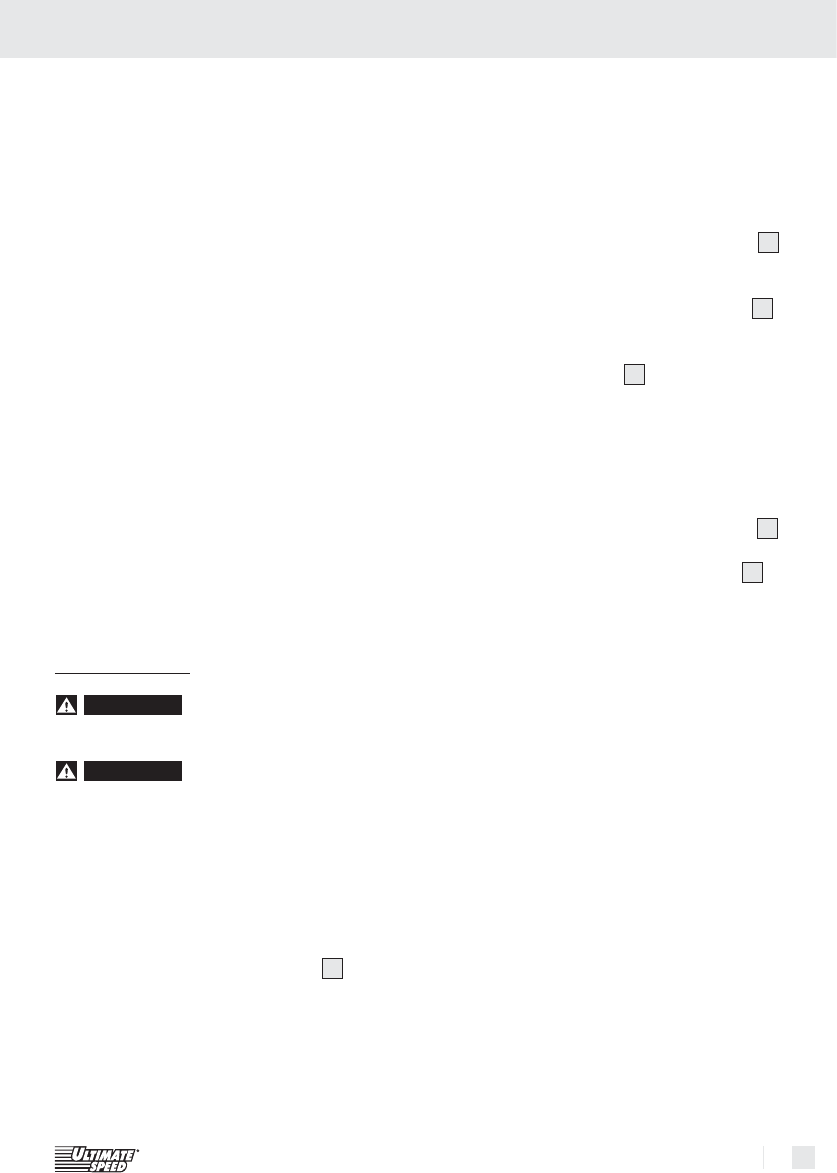
9 GB/IE
Safety / Operation
½ Unplug the charger from the mains supply when
not being used! This also benefits the environment.
Consider how much electricity is consumed,
even in standby mode.
½ Remain alert at all times and always watch what
you are doing. Always proceed with caution
and do not use the battery charger if you can-
not concentrate or feel unwell.
©
Product features
This appliance has been designed for charging a
variety of SLA batteries (sealed lead acid batteries),
as mainly used in cars, motorbikes and several other
vehicles. They may be of types e.g. WET (with liquid
electrolyte), GEL (with mit gel-type electolyte) or AGM
(absorbed glass mat) batteries. A special design of
the appliance (also named „three-phase-charging
strategy“) enables the recharging of the batttery to
almost 100 % of its original capacity. Connecting
the battery for a long period to the battery charger
is also a good way of ensuring that your battery is
kept in optimum condition.
©
Operation
WARNING!
Before you carry out any work
on the battery charger always pull the mains
plug out of the mains socket.
WARNING!
DANGER OF ELECTRIC
SHOCK! DANGER OF DAMAGE TO
PROPERTY! DANGER OF INJURY! Ensure
that you do not strike electrical cables, gas or
water pipes when you are drilling into the wall.
If necessary, check the wall using a suitable
detector before you drill.
˽ You may find it convenient to attach the battery
charger on to a board or a wall. Screw the two
screws through the mounting holes
12
into the
board or wall.
©
Connection
˽ Before starting the charging or discharging
procedure on a permanently installed battery
in a vehicle, first disconnect the minus pole con-
necting cable (black) of the vehicle from the
minus pole of the battery. The minus pole of the
battery is usually connected to the car body.
˽ Then disconect the plus pole connecting cable
(red) of the vehicle from the plus pole of the
battery.
˽ First attach the „+“ quick-release clamp (red)
15
of the battery charger to the „+“ terminal of the
battery (see Fig. C).
˽ Attach the „–“ quick-release clamp (black)
16
of the battery charger to the „–“ terminal of
the battery (see Fig. C).
˽ Connect the mains lead
11
of the battery
charger to an electrical power outlet socket.
©
Disconnecting
˽ Disconnect the appliance from the power supply.
˽ Detach the „–“ quick-release clamp (black)
16
from the „–“ terminal of the battery.
˽ Detach the „+“ quick-release clamp (red)
15
from the „+“ terminal of the battery.
˽ Reconnect the plus pole connecting cable of
the vehicle to the plus pole of the battery.
˽ Reconnect the minus pole connecting cable of
the vehicle to the minus pole of the battery.
©
Select charging mode
You can select different charging modes for charging
different batteries at different ambient temperatures.
In comparison with conventional battery charging
stations, this appliance has a special function for
reusing an empty battery or rechargeable battery.
You can recharge an empty battery / rechargeable
battery. Safe charging is ensured by means of a
protection function against incorrect connection and
short circuiting. Due to the installed electronics, the
charging station does not begin operation directly
after connecting the battery, but only starts after a
charging mode has been selected.
This avoids sparking, which often occurs when
connecting. The battery charger is controlled by an
internal MCU (Micro-Computer Unit).


















